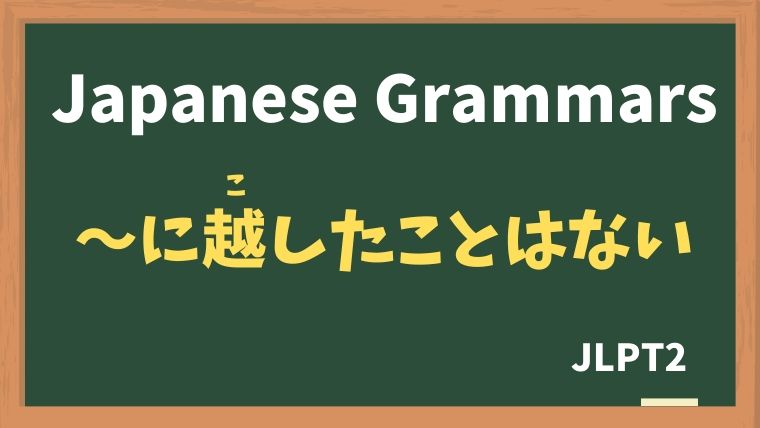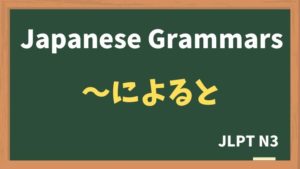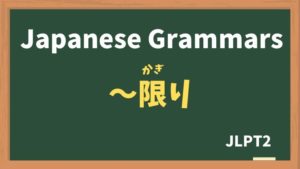
Explanation:〜に越したことはない
fa-check-circleMeaning
"〜するのが一番いい / 当然〜するのがいい"
"nothing can be better than〜"
Used to convey the idea that "it’s best to" or "there’s nothing better than" a particular option. While it doesn’t necessarily mean the option is absolutely required, it implies that, under the circumstances, this is the most desirable or preferable choice.
fa-check-circleForm
V(plain form)+ に越したことはない
イA(plain form) + に越したことはない
ナAである + に越したことはない
Nである + に越したことはない
fa-check-circlePoints
- Best Option: This expression is used to highlight that a particular course of action or condition is ideal or preferable.
- Not Absolute: It suggests that while other options may exist, the one mentioned is the best or most favorable.
- Common in Advice: It is often used when giving advice, emphasizing what is preferable or safest.
fa-check-circleJLPT Level
N2
Sample sentenes
結婚するなら、相手はお金持ちであるに越したことはない。
If you're going to get married, it's best if your partner is wealthy.
給料は高くなくてもいいが、高いに越したことはない。
The salary doesn't have to be high, but higher is definitely better.
健康のためにも、タバコは吸わないに越したことはない。
For health reasons, not smoking is definitely better.
疲れている時は、早く寝るに越したことはない。
When you're tired, nothing beats going to bed early.
JLPTの試験はまだまだ先だが、準備を始めるなら早いに越したことはない。
The JLPT exam is still far off, but starting preparation early is definitely better.
安いに越したことはないけど、質も大事だよね。
It's best if it's cheap, but quality is important too, right?
Vocabulary
| Japanese |
English | |
| 相手 | あいて | partner |
| 給料 | きゅうりょう | salary |
| 準備 | じゅんび | preparation |
| 質 | しつ | quality |






